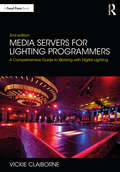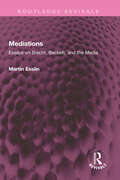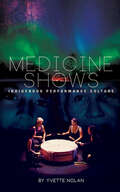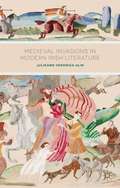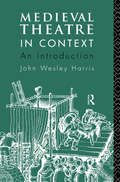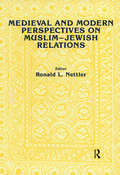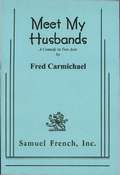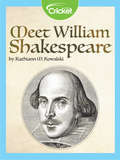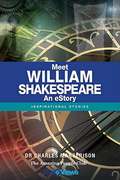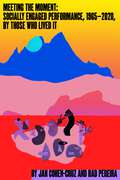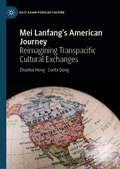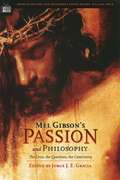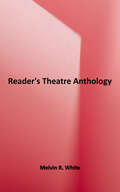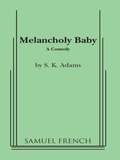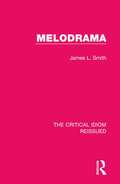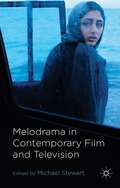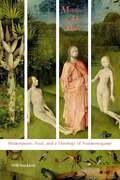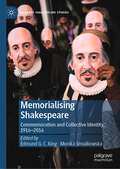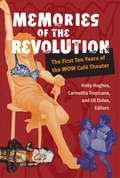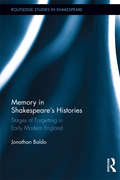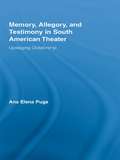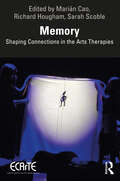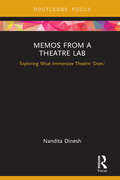- Table View
- List View
Media Servers for Lighting Programmers: A Comprehensive Guide to Working with Digital Lighting
by Vickie ClaiborneMedia Servers for Lighting Programmers, Second Edition, is the reference guide for lighting programmers working with media servers – the digital media devices used to control and manipulate video, audio, lighting, and projection content that have become the industry standard for live events, broadcast, and theatre performances. This book contains all the information you need to begin working with these devices, with topics ranging from common video terminology and equipment to the workflows for setup, patching, programming, and operating a media server from a lighting console via DMX. It also features a brief history of where this unique market originated from and offers a look at the current trends in media server technology and the growing digital media industry. This second edition also includes more information on alternative methods of programming and operating a server beyond using DMX, along with new information on projection mapping workflows, content creation software, and media management techniques. Media Servers for Lighting Programmers, Second Edition, is a valuable resource for the lighting programmer working in live entertainment venues. The book includes access to additional online support material and links to industry sites and articles.
Mediations: Essays on Brecht, Beckett, and the Media (Routledge Revivals)
by Martin EsslinFirst published in 1980, Mediations supplements, extends, and deepens Martin Esslin’s earlier writings on Samuel Beckett and Bertolt Brecht. In the third section of this collection of essays, Esslin discusses the mass media as dramatic art and their effects – radio as a medium for drama; television’s insatiable appetite for artistic skills, its commercials, and its series, which he labels modern folk epics. Intimately acquainted with the cultural implications of several languages and ideologies and with the possibility for distortion inherent in translating them, Esslin’s Mediations gathers together decades of his rich experience and reflections on cross linguistic and artistic boundaries, as well as theatre. This book will be of interest to students of literature, drama, and media studies.
Medicine Shows: Indigenous Performance Culture
by Yvette NolanContemporary Indigenous theatre in Canada is only thirty-three years old, if one begins counting from the premiere of Maria Campbell’s Jessica in Saskatoon and the establishment of Native Earth Performing Arts in Toronto. Since those contemporaneous events in 1982, the Canadian community of Indigenous theatre artists has grown and inspired one another.Medicine Shows: Indigenous Performance Culture traces the work of a host of these artists over the past three decades, illuminating the connections, the artistic genealogy, and the development of a contemporary Indigenous theatre practice. Neither a history nor a chronicle,Medicine Shows examines how theatre has been used to make medicine, reconnecting individuals and communities, giving voice to the silenced and disappeared, staging ceremony, and honouring the ancestors.
Medieval Invasions In Modern Irish Literature
by Julieann Veronica UlinMedieval Invasions in Modern Irish Literature offers the first book-length treatment of the literary return to and reinterpretation of Giraldus Cambrensis's twelfth century The History of the Conquest of Ireland. Writers studied include W. B. Yeats, Lady Gregory, James Joyce, Sean O'Faol#65533;in, Miche#65533;l Mac Liamm#65533;ir, Brendan Behan and Jamie O'Neill.
Medieval Shakespeare
by Peter Holland Helen Cooper Ruth Morse Helen Cooper Ruth MorseMedieval culture pervaded Shakespeare’s life and work, from his childhood, spent within reach of the last performances of the Coventry Corpus Christi plays, to his dramatization of Chaucer in The Two Noble Kinsmen three years before his death. The world he lived in was still largely a medieval one, in its topography and its institutions. The language he spoke had been forged over the centuries since the Norman Conquest. The genres in which he wrote, not least historical tragedy, love-comedy and romance, were medieval inventions. A high proportion of his plays have medieval origins and he kept returning to Chaucer, acknowledged as the greatest poet in the English language. Above all, he grew up with an English tradition of drama developed during the Middle Ages that assumed that it was possible to stage anything – all time, all space. Helen Cooper’s book looks at the role of all these continuations of medieval culture in enabling Shakespeare to become the world’s greatest playwright. Shakespeare and the Medieval World provides a panoramic overview that opens up new vistas within his work and uncovers the richness of his inheritance.
Medieval Theatre in Context: An Introduction
by John HarrisFirst Published in 1992. Routledge is an imprint of Taylor & Francis, an Informa company.
Medieval and Modern Perspectives on Muslim-Jewish Relations (Studies In Muslim-jewish Relations Ser. #Vol. 2.)
by Ronald L. NettlerFirst Published in 1995. The life of Jews in medieval Baghdad or 18th-century Tunis may now be considered to be important as Jewish life in 13th-century Worms or 19th-century Poland. Islamic theological and exegetical writing on Judaism may now command as much interest as their counterparts in Christian literature, while the rich Islamic-Jewish cultural interchange over many centuries is clearly of great significance. Studies in Muslim-Jewish Relations will be a series of general volumes each including a wide range of subjects, periodic edited volumes each focusing on a certain theme, and a planned related monograph series which will publish authored volumes on more specialized aspects of the field. This volume is a collection of twelve essays.
Meet My Husbands
by Fred CarmichaelComedy / 4m, 5f / Interior / This comic look at advertising and the media finds Elaine Scott, an advertising executive whose position is in jeopardy, in Florida to meet the Mulgrews, European clients she must sell on adopting her agency's campaign for their Swiss Mountain Sausages. Mulgrew insists that the campaign and all those connected with it must reflect wholesome family values. After Elaine hires a beach bum, Tim Billings, to pose as her spouse, her new husband arrives at the hotel. The balcony between suites becomes a comic causeway with the sausage campaign handing in the balance. Who IS Tim Billings? Why is that newspaper woman prying about? Why has Elaine's opportunistic former husband appeared on the scene? And will the sales pitch succeed? A multiple surprise ending caps this hilarious foray into the world of advertising.
Meet William Shakespeare
by Kathiann M. Kowalski"All the world's a stage," William Shakespeare wrote. More than 400 years later, stages around the world still show Shakespeare's plays. But who was William Shakespeare? And what makes his plays so great?
Meet William Shakespeare - An eStory
by Charles MargerisonMeet William Shakespeare in this personal audio story from The Amazing People Club. You will hear how he married a girl called Anne Hathaway and then left home to pursue his dreams of becoming a playwright in London. Experience the journey he made which would lead him to write great plays such as Hamlet and Romeo and Juliet and in turn become one of the greatest, and most influential writers of all time. Shakespeare's story comes to life through BioViews®. These are short biographical narratives, similar to interviews. They provide an easy way of learning about amazing people who made major contributions and changed our world.
Meeting the Moment: Socially Engaged Performance, 1965–2020, by Those Who Lived It
by Jan Cohen-Cruz Rad PereiraThe experiences of a diverse range of progressive theater and performance makers in their own words.Curated stories from over 75 interviews and informal exchanges offer insight into the field and point out limitations due to discrimination and unequal opportunity for performance artists in the United States over the past 55 years. In this work, performers, often unknown beyond their immediate audience, articulate diverse influences. They also reflect on how artists are educated and supported, what content is deemed valuable and how it is brought to bear, as well as which audiences are welcome and whether cross-community exchange is encouraged. The book’s voices bring the reader from 1965 through the first wave of the covid-19 pandemic in 2020. They point to more diverse and inclusive practices and give hope for the future of the art.
Mei Lanfang and the Twentieth-Century International Stage
by Min TianThe first book-length study in any language of the presence and influence of Mei Lanfang, the internationally known Chinese actor who specialized in female roles on the twentieth-century international stage. Tian investigates Mei Lanfang's presence and influence and the transnational and intercultural appropriations of his art.
Mei Lanfang's American Journey: Reimagining Transpacific Cultural Exchanges (East Asian Popular Culture)
by Zhaohui Hong Cunfa DongThis groundbreaking study examines Peking Opera legend Mei Lanfang&’s 1930 U.S. visit through extensive primary sources and a cross-cultural lens. It meticulously chronicles his 76 performances over 182 days, reconstructing his daily itinerary, highlighting key events, and estimating box office revenues. Drawing on over 1,000 local newspaper reports from 34 states and territories, as well as diaries, memoirs, archival records, and advertisements, this book offers fresh insights into U.S.-China cultural exchange nearly a century ago—a topic with enduring contemporary relevance. Employing a mixed-methods approach, it integrates grounded theory, abductive reasoning, and the theory of para-text to deliver a rigorous and innovative analysis. As both a theoretical contribution and an analytical framework, the book reimagines transpacific cultural exchange, systematically exploring Peking Opera diplomacy, which involves non-governmental individuals and collectives engaged in cultural, artistic, commercial, and educational interactions. Furthermore, it delves into inculturation, examining how Mei Lanfang&’s visit contributed to the localization of Chinese culture in America, fostering cultural accommodation, adaptation, and integration. Finally, it introduces the theory of marginalization studies, shedding light on the peripheral figures and events that played a crucial role in Mei&’s visit. By combining rigorous analysis with innovative theoretical perspectives, this book reinterprets and reimages the significance of Mei Lanfang&’s visit, offering an essential resource for scholars and anyone interested in modern Chinese history, transpacific studies, cultural diplomacy, and U.S.-China relations.
Mel Gibson's Passion and Philosophy: The Cross, the Questions, the Controversy
by Jorge J. E. GraciaIn Mel Gibson's Passion and Philosophy (Volume 10 in the series, Popular Culture and Philosophy), twenty philosophers with widely varying religious and philosophical backgrounds examine all the most important issues raised by the movie (The Passion of the Christ, Mel Gibson's spectacular film about the death of Jesus), without ridicule or rancor.
Mel White's Readers Theatre Anthology
by Melvin R. WhiteThe growing popularity of Readers Theatre proves you don't need scenery or costumes to create a stirring dramatic performance. This collection of scripts by a nationally known authority on the subject will add a new theatrical look to your drama program. Their ease of performance makes these scripts ideal for classroom use, as well. A variety of stories from the pens of classical and contemporary writers, journalists, and playwrights, all adapted to reader’s theatre performance, make this text a truly valuable part of any drama library. The material includes comedy, mystery and suspense, Christmas stories, folklore, and children's classics. Classic and contemporary works by William Shakespeare, James Thurber, Rudyard Kipling, O. Henry, Gordon Bennett, and many more are included.
Melancholy Baby
by Sheila K. AdamsAll Groups / Comedy / 4 m., 3 f. 1 f. child. / Interior / Kate Gaitman, a soap opera villainess, comes home from yet another morning of mass murder at the studio to find her husband has lost the latest in a long line of jobs. She kicks him out of the apartment just as nervous cousin Stephen is entering for a reading of her long lost father's will. And what did daddy leave Katie and her two irresponsible sisters? Jane: a twelve year old with a mind of her own who wants to be a night club singer just like Sinatra.
Melodrama (The Critical Idiom Reissued #27)
by James L. SmithFirst published in 1973, this book explores the genre of melodrama. After discussing the defining characteristics of melodrama, the book examines the dramatic structures of the two major and contrasting emotions presented in melodrama: triumph and defeat. It concludes with a reflection on the ways in which elements of melodrama have appeared in protest theatre.
Melodrama in Contemporary Film and Television
by Michael StewartMelodrama in Contemporary Film and Television debates the ways in which melodrama expresses and gives meaning to: trauma and pathos; memory and historical re-visioning; home and borders; gendered and queer relations; the family and psychic identities; the national and emerging public cultures; and morality and ethics.
Members of His Body: Shakespeare, Paul, and a Theology of Nonmonogamy
by Will StocktonBuilding on scholarship regarding both biblical and early modern sexualities, Members of His Body protests the Christian defense of marital monogamy. According to the Paul who authors 1 Corinthians, believers would do well to remain single and focus instead on the messiah’s return. According to the Paul who authors Ephesians, plural marriage is the telos of Christian community. Turning to Shakespeare, Will Stockton shows how marriage functions in The Comedy of Errors, The Merchant of Venice, Othello, and The Winter’s Tale as a contested vehicle of Christian embodiment. Juxtaposing the marital theologies of the different Pauls and their later interpreters, Stockton reveals how these plays explore the racial, religious, and gender criteria for marital membership in the body of Christ. These plays further suggest that marital jealousy and paranoia about adultery result in part from a Christian theology of shared embodiment: the communion of believers in Christ.In the wake of recent arguments that expanding marriage rights to gay people will open the door to the cultural acceptance and legalization of plural marriage, Members of His Body reminds us that much Christian theology already looks forward to this end.
Memorialising Shakespeare: Commemoration and Collective Identity, 1916–2016 (Palgrave Shakespeare Studies)
by Edmund G. C. King Monika SmialkowskaThis book is the first comprehensive account of global Shakespeare commemoration in the period between 1916 and 2016. Combining historical analysis with insights into current practice, Memorialising Shakespeare covers Shakespeare commemoration in China, Ukraine, Egypt, and France, as well as Great Britain and the United States. Chapter authors discuss a broad range of commemorative activities—from pageants, dance, dramatic performances, and sculpture, to conferences, exhibitions, and more private acts of engagement, such as reading and diary writing. Themes covered include Shakespeare’s role in the formation of cultural memory and national and global identities, as well as Shakespeare’s relationship to decolonisation and race. A significant feature of the book is the inclusion of chapters from organisers of recent Shakespeare commemoration events, reflecting on their own practice. Together, the chapters in Memorialising Shakespeare show what has been at stake when communities, identity groups, and institutions have come together to commemorate Shakespeare.
Memories Of The Revolution: The First Ten Years Of The Wow Café Theater
by Jill Dolan Holly Hughes Carmelita TropicanaThe women's experimental theater space called the WOW Café (Women's One World) has been a vital part of New York's downtown theater scene since 1980. Since that time, WOW has provided a place for feminist and particularly lesbian theater artists to create, perform, and witness a cultural revolution. Its renowned alumnae include playwright and actor Lisa Kron, performance artists Holly Hughes and Carmelita Tropicana, the theater troupe the Five Lesbian Brothers, and actors/playwrights Peggy Shaw, Lois Weaver, and Deb Margolin, among others. Memories of the Revolution collects scripts, interviews, and commentary to trace the riotous first decade of WOW. While the histories of other experimental theater collectives have been well documented, WOW's history has only begun to be told. The anthology also includes photographs of and reminiscences by Café veterans, capturing the history and artistic flowering of the first ten years of this countercultural haven.
Memory in Shakespeare's Histories: Stages of Forgetting in Early Modern England (Routledge Studies in Shakespeare)
by Jonathan BaldoA distinguishing feature of Shakespeare’s later histories is the prominent role he assigns to the need to forget. This book explore the ways in which Shakespeare expanded the role of forgetting in histories from King John to Henry V, as England contended with what were perceived to be traumatic breaks in its history and in the fashioning of a sense of nationhood. For plays ostensibly designed to recover the past and make it available to the present, they devote remarkable attention to the ways in which states and individuals alike passively neglect or actively suppress the past and rewrite history. Two broad and related historical developments caused remembering and forgetting to occupy increasingly prominent and equivocal positions in Shakespeare’s history plays: an emergent nationalism and the Protestant Reformation. A growth in England’s sense of national identity, constructed largely in opposition to international Catholicism, caused historical memory to appear a threat as well as a support to the sense of unity. The Reformation caused many Elizabethans to experience a rupture between their present and their Catholic past, a condition that is reflected repeatedly in the history plays, where the desire to forget becomes implicated with traumatic loss. Both of these historical shifts resulted in considerable fluidity and uncertainty in the values attached to historical memory and forgetting. Shakespeare’s histories, in short, become increasingly equivocal about the value of their own acts of recovery and recollection.
Memory, Allegory, and Testimony in South American Theater: Upstaging Dictatorship (Routledge Advances in Theatre & Performance Studies #Vol. 8)
by Ana Elena PugaMemory, Allegory, and Testimony in South American Theater traces the shaping of a resistant identity in memory, its direct expression in testimony, and its indirect elaboration in two different kinds of allegory. Each chapter focuses on one contemporary playwright (or one collaborative team, in the case of Brazil) from each of four Southern Cone countries and compares the playwrights’ aesthetic strategies for subverting ideologies of dictatorship: Carlos Manuel Varela (memory in Uruguay), Juan Radrigán (testimony in Chile), Augusto Boal and his co-author Gianfrancesco Guarnieri (historical allegory in Brazil), Griselda Gambaro (abstract allegory in Argentina).
Memory: Shaping Connections in the Arts Therapies
by Richard Hougham Sarah Scoble Marián CaoMemory is compilation of scholarly chapters by authors of global reputation in the arts therapies.This international publication reflects the theme of the 16th International Conference of the European Consortium for Arts Therapies (ECArTE), held in Vilnius, Lithuania. Questions of memory go to the very heart of our making sense of the world. This book brings together wide-ranging chapters, which address the question of memory, designed to stimulate understanding and debate in contemporary arts therapy education, practice and research.Writers from Canada, Estonia, Germany, Iceland, Lebanon, Lithuania, Spain, the UK and the US combine to create a topical publication, incorporating diverse and current thinking in art therapy, dance movement therapy, dramatherapy and music therapy. In this innovative compilation, authors offer different cultural perspectives on the conception of memory which informs epistemology across the field of arts therapy.This book will be of interest and relevance to those in the arts therapy community and to a broader readership, including students and professionals in the disciplines of psychology, sociology, psychotherapy, the arts, medicine, integrated health and education.
Memos from a Theatre Lab: Exploring what immersive theatre 'does' (Series In Performing Arts Ser.)
by Nandita DineshWhat does Immersive Theatre ‘do’? By contrasting two specific performances on the same theme – one an ‘immersive’ experience and the other a more conventional theatrical production – Nandita Dinesh explores the ways in which theatrical form impacts upon actors and audiences. An in-depth case study of her work Pinjare (Cages) sets out the ‘hows’ and ‘whys’ of her specific aesthetic framework. Memos from a Theatre Lab places Dinesh’s practical work within the context of existing analyses of Immersive Theatre, using this investigation to generate an underpinning theory of how Immersive Theatre works for its participants.
